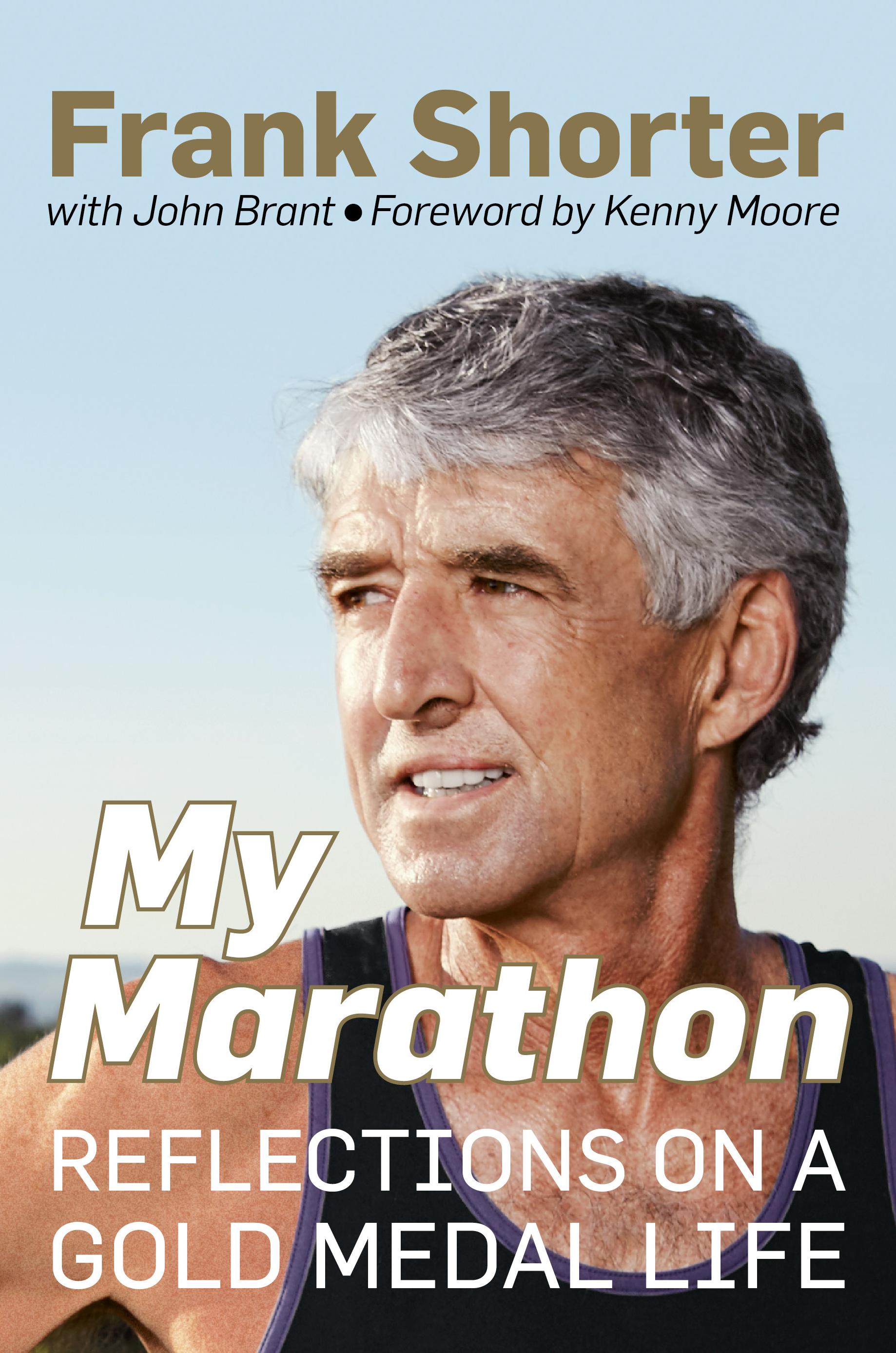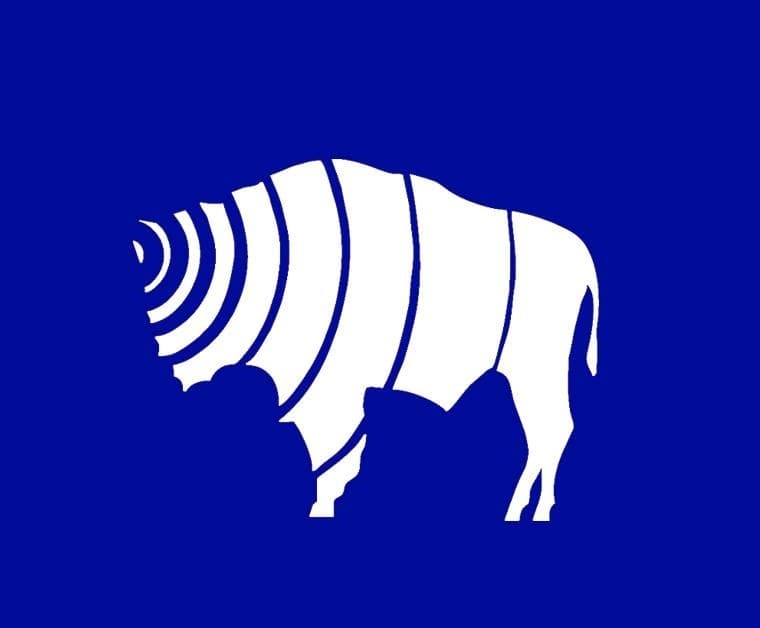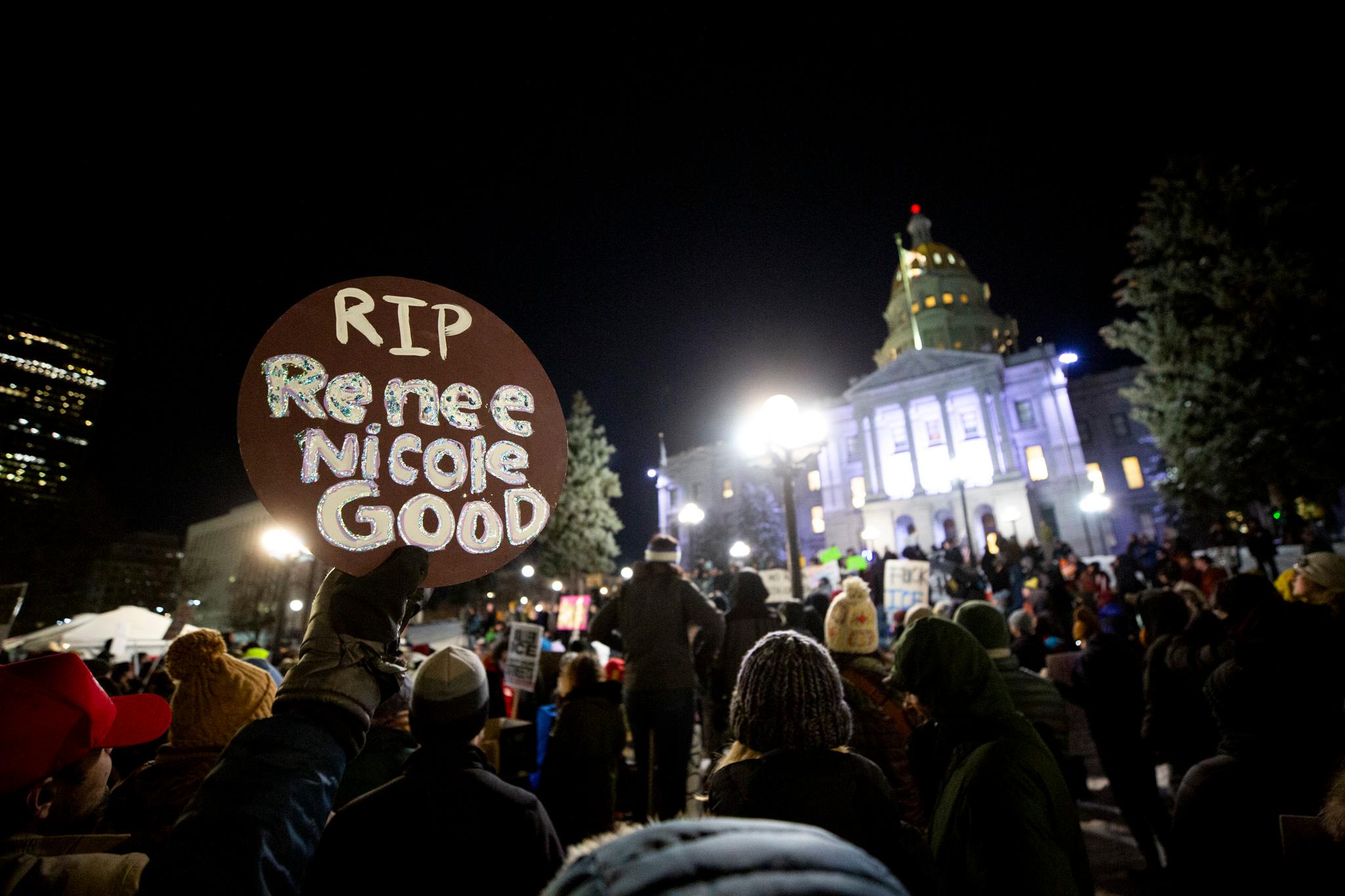
Frank Shorter is an icon in the running world, as evidenced by the bronze statue of him in Boulder, where he has lived since the 1970s. In 1972, he won the marathon at the Munich Olympics in two hours, 12 minutes and 19 seconds. That victory helped launch a running boom in the United States.
But just before Shorter ran into the Olympic stadium to cross the finish line in Munich, he heard a roar. The crowd thought the leader had already entered, but it was an imposter.

That imposter could represent the ghosts that have followed Shorter through his whole life, even in what should have been his brightest moments. He lays it all bare in his new autobiography, co-written with John Brant, called "My Marathon: Reflections on a gold medal life."
Shorter spoke with Colorado Matters host Ryan Warner.
On why he decided to talk publicly about his father's abuse:
"I think people who have been in that kind of situation know that when this kind of abuse starts at a very young age, the kind of fear you develop of this person is extreme, and it never goes away. And so it really did take until my father finally died, and I realized he couldn't hit anyone anymore."
On how running "saved" him:
"Well, the house [I grew up in] was a prison. And I found that the YMCA up the street, and my friends' houses, they became sanctuaries for me. Then when I was about 8 or 9 years old, I started to run to those places, and I found I just loved the motion. I felt safe... And it also allowed me to think about my circumstances and, in a way, formulate my escape plan."
On the attack on Israeli athletes at the 1972 Olympics:
"I heard the shot when the terrorist broke into the Israeli quarters. And I knew it was a gunshot, and I wasn't quite sure of what had gone on. I woke up the next morning about 7 a.m., and the way I've described it is, it's like a jungle when there's a predator: It's silent. There was no noise from down below in the Olympic village... Instinctively we knew you couldn't do what the terrorists wanted you to do, and obviously they wanted to disrupt the Games."
Read a book excerpt:
Prologue: Riding My Pain September 10, 1972. It was the morning of my marathon, and by every conceivable measure, I felt ready. The moment I rose from my mattress, and my bare feet touched the concrete floor of the balcony of our apartment in the athletes’ village, I knew I was in rhythm. In balance. I didn’t think I was going to win. I just felt confident that my plan would hold up. My mantra: Ride my pain, work through the finish, don’t get distracted. Don’t think about the fact that, five days earlier, I had looked out from my balcony across the courtyard and seen a terrorist in a balaclava pointing an Uzi from a facing apartment window. Don’t think about the 11 slain Israeli athletes, the air of stunned hysteria permeating Munich, or the chances of a follow-up attack. There would be time for that later. My job was to run—my trusted method for coping with chaos and managing mayhem. I went into the apartment, keeping quiet so that I wouldn’t disturb Dave Wottle and his wife, Jan. After Dave had won his gold medal in the 800 early in the Games, he celebrated by smuggling his bride into our unit. It wasn’t much of a challenge. It was easy to forge an ID card or, as the Black September killers had proven, just climb the chain-link fence and push through an unlocked door. I had given Dave and Jan my half of a bedroom and dragged my mattress out to the balcony. Now, I slipped on a pair of training shoes and headed out for a brief shakedown walk around the village, nodding to the heavily armed West German soldiers standing sentry, five days too late. Later, back at the apartment, I put on warm-ups and went down to the dining hall for my prerace meal ritual: toast, coffee, and fruit. There was plenty of time to digest before the 3 p.m. start. The afternoon post time suited me. I wasn’t much for early mornings. Back home, I trained every day at 11:30 a.m. and 3:30 p.m. You could set your watch by my routine. Consistency, I had learned, was another way to tamp down terror. I filled the next few hours by resting and reviewing my game plan. Earlier in the Games, I had finished fifth in the 10,000 meters. My 27:51:32 clocking was good for an American record but not good enough for a medal. After crossing the line, I stood for a moment, hands on hips, studying the times on the scoreboard. I might have looked disappointed, but in fact I was calibrating. None of my competitors in the marathon could touch my speed for a 10-K. This was good. My plan was falling into place. This was very good. Over the course of my two weeks in Munich, I had made a point of running every section of the 26.2-mile marathon course. The previous Thursday I rode the metro out to the Nymphenburg Palace, at the 9-mile mark. I hopped off the car, took a quick glance at the graceful lawns and gardens and the imposing main building that had been built in the 1600s, and I made a note to return later as a tourist. I then turned and ripped off a 3-mile time trial, mile 9 to mile 12 of the marathon course, the same stretch over which I planned to surge during the race. I covered the first mile in 4:30, then, over the next 2 miles, throttled back to a still-rapid 4:50 pace. It felt easy, almost preternaturally easy, only 75 to 80 percent of maximum perceived effort, the ease the product of the mass of searing speedwork I’d logged over the past few years. This was another favorable sign. After cooling down, I rode the metro back to the Olympic Village. Athletes received free public-transit passes for the duration of the Games, which, during those rigidly amateur years, seemed like quite the perk. A few days later I took another metro ride, this one out to the military hospital where I had been born in 1947, when my father was serving in the newly partitioned West Germany as a physician for the occupying US Army. I liked telling people at the Olympics that I’d been born in Munich. It gave me a special connection to the city, and I hoped that visiting the hospital might provide an emotional boost in the final days before the marathon. My field trip, however, proved anticlimactic. The military hospital turned out to be small and nondescript, resembling a clinic more than a hospital as we conceive of them in the United States. I tried to imagine my parents on the day of my birth—my mother’s hair, my father’s uniform—but came up empty. All I could envision were two amorphous, impersonal entities delivering me into the world. I realized that visiting the hospital had been a mistake. Any thought of my father was a mistake. I climbed back on the metro and rode home to the athletes’ village. Reprinted from My Marathon by Frank Shorter and John Brant. Copyright © 2016 by Frank Shorter and John Brant. By permission of Rodale Books. |
rlated:









